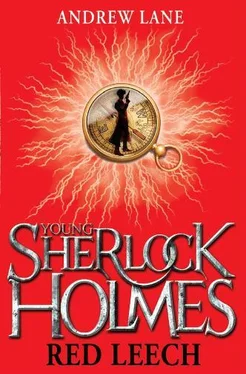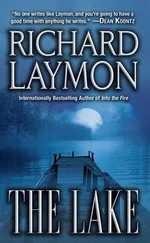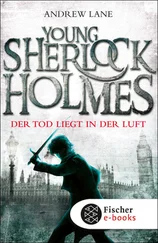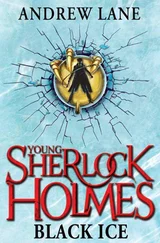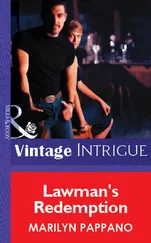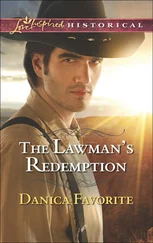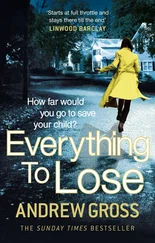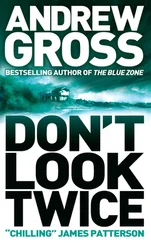The door opened and Amyus Crowe entered the room. He was holding a piece of crumpled paper.
“I found this in the prisoner’s pocket,” he said. “Looks like some kind of code. Not sure what it means.”
“Was he conscious?” Mycroft asked.
“He was either flat out or a good actor. I had a quick look at his clothes, though. The cut of the material and the labels inside are mainly American.”
“Let us have a look at that paper. It might give us a clue to where he had to send his message.”
Crowe spread the paper out on his desk. Mycroft and Sherlock crowded around him. Virginia stayed back, smiling now that her father had returned.
The paper had a series of letters and numbers scrawled across it in handwriting that had obviously been written in a moving carriage in a hurry. Sherlock read ten groups of five characters each:

“What does it mean?” Sherlock asked.
“It appears to be a simple subsititution cipher,” Crowe replied. “Substitution ciphers were used a lot during the War Between the States to keep messages from falling into the wrong hands. The idea is simple — instead of “a” you write somethin’ else, say “z”,” — he pronounced it “zee” — “an’ instead of “b” you maybe write “y”. As long as you an’ the person you’re sendin’ the message to both know which letters substitute for which other letters — what the “key” is — the message can be coded and decoded safely’
“But we don’t know what the key is, do we?” Sherlock said.
“That’s right. If we had a longer message we might be able to work it out through frequency analysis, but we don’t.”
“Frequency analysis?”
“This is hardly the time for a tutorial,” Mycroft sighed, but Crowe answered anyway.
“A clever man many years ago worked out that in messages written in English, certain letters occur with more frequency than others. “E” is used more often than anythin’. “T” comes next, then “a”, then “o” an’ then “n”. “Q” an’ “z” are, unsurprisin’ly, the least used. If you have a large block of text where the letters have been substituted by other letters, look for the most common. That’s prob’ly “e”. The next most common is prob’ly “t”. It’s a process of elimination. With a bit of luck you can decode enough of the message to work out the whole thing.” He looked at the message on the paper in front of them. “This one I’m not so sure about. We don’t have enough letters to do a frequency analysis, but I’m wonderin’ if they had enough time to work one out, or code up a message if they did. I reckon this is much simpler.”
“Simpler how?” Sherlock asked.
“Ten groups of five letters each. That makes me think of a grid, or a table.”
Crowe quickly scribbled down the letters again underneath the originals, but in a more ordered arrangement:

“Now there’s two ways a body can write a five-by-ten grid,” he mused, “this way, or the reverse.”
Quickly, he wrote another grid, this time longer across than it was wide:

“ 'Southampton Post Office' ”, Sherlock read breathlessly, “ 'SS Great Eastern Dock, 09.45, Tuesday '. That must be the place to send the message, the place the ship is leaving from and the time it leaves.”
“Not a particularly clever code,” Crowe mused, “but prob’ly the best they could manage in a speeding carriage.” He glanced at Mycroft. “I guess we both know what comes next, don’t we?”
Mycroft nodded. “I’ll get started.”
Sherlock looked from one to the other. “ What comes next?” he demanded.
The two men stared at each other. It was Mycroft who eventually spoke.
“They’ve booked themselves on a ship leaving Southampton tomorrow at a quarter to ten. While we’re dealing with things here, they’ll be at Southampton. By the time I can get the local police roused, the ship will have sailed.”
“So they’ve got away,” Sherlock said.
“Not necessarily,” Mycroft pointed out. “There are ships sailing for America every day. Most of the ships take passengers, but their main function is carrying letters and parcels. That’s where the money can be made. If we can book tickets on a ship leaving tomorrow, or the day after, for the same destination, then we can get there shortly behind them. Or perhaps even ahead of them. Our ship may be lighter, or more powerful. They did not choose their own ship because they thought they would be chased, but because they wanted to get out of the country as fast as possible.”
“ We ?” Sherlock asked.
“Mr Crowe will have to go,” Mycroft replied, “because he has jurisdiction in his own country. He can call upon the assistance of the local police. He will obviously take his daughter because he would not leave her here unaccompanied. I, on the other hand, will stay, because I need to ensure that the British Government is apprised of events, and to provide Mr Crowe with any long-range diplomatic support he needs.”
“Can’t he just send a cable to the Pinkertons, telling them to intercept the Great Eastern when it arrives?”
Mycroft shook his head, his prominent jowls wobbling as he did so. “You forget,” he said, “that we have no clear descriptions of the men; certainly not enough to secure their arrest. Apart from John Wilkes Booth, they cannot be identified by anyone apart from you.”
“And what about me?” Sherlock asked, barely able to breathe.
“You are the only one of us who saw the other men,” Mycroft said gently. “I cannot tell you to do this, Sherlock. I cannot even in all conscience ask you. I can merely point out that Mr Crowe cannot apprehend the men if he cannot find them.”
“You want me to go to America ?” Sherlock whispered.
“I can tell Uncle Sherrinford and Aunt Anna that I have arranged an educational trip,” Mycroft said. “Lasting perhaps a month or so. They will be against it, of course, but I think I can persuade them.”
“Actually,” Sherlock said, thinking about Mrs Eglantine and the strange power she seemed to exert in his aunt and uncle’s household, “I think you’ll find it a lot easier than you think to convince them to let me go away for a while.”
The docks at Southampton were a bustling mass of men, women and children dressed in their Sunday best clothes. Some of them were streaming like ants up the gangplanks leading from the dockside up to the decks of ships, some of them were coming down the gangplanks from other ships and gazing around, wide-eyed at the sight of a new country, while the rest were either saying goodbye to friends and relatives or greeting newcomers with open arms. And in and around them wove uniformed porters wheeling piles of luggage precariously piled on to trolleys and dock workers in rough clothes and bandannas moving goods on to and from wooden pallets. Above it all towered the wooden cranes that were taking net-covered pallets from the dockside up to the decks of the ships or from the decks down to the dockside, as well as the cliff-like wooden or iron sides of the ships and the masts and funnels that rose like a mathematical forest all around.
And everywhere Sherlock looked he could see evidence of a hundred crimes being committed: pockets being picked, fixed card games being played, netted bales of goods being cut open so that small items could be removed, children being separated from their parents for heaven knew what reason, and newcomers paying in advance for transportation to boarding houses and hotels that didn’t exist or were nothing like the florid descriptions that were being given.
Читать дальше
